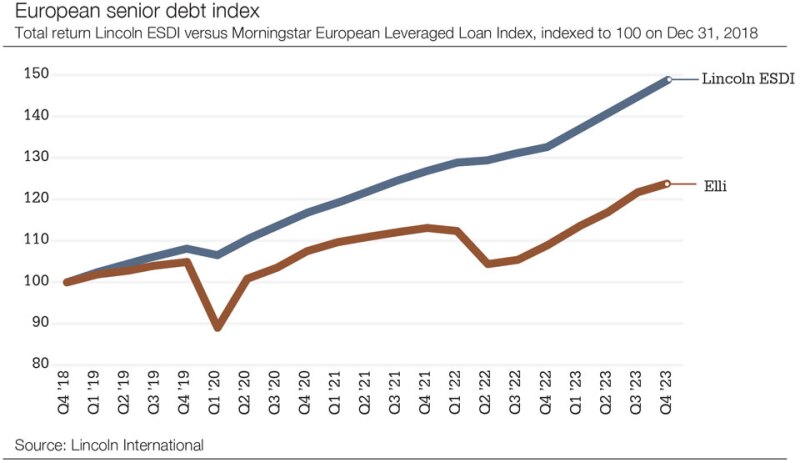IMF Sounds Alarm: Trump's Trade Policies Threaten Global Financial Stability

Table of Contents
The Impact of Tariffs on Global Trade and Economic Growth
Trump's imposition of tariffs – a key element of his trade policies – dramatically increased import costs for businesses and consumers alike. These tariffs, intended to protect domestic industries, disrupted established global supply chains, triggering a series of retaliatory tariffs from other countries. This escalation ignited a trade war, further exacerbating economic instability.
Several industries felt the brunt of these escalating tariffs. For example, the agricultural sector, particularly soybean farmers, faced significant losses due to retaliatory tariffs imposed by China. The automotive industry also experienced disruptions due to tariffs on imported steel and aluminum.
- Increased prices for consumers: Tariffs directly translate to higher prices for imported goods, reducing consumer purchasing power.
- Reduced international trade volume: Trade wars stifle global commerce, leading to a significant reduction in the overall volume of international trade.
- Negative impact on GDP growth in affected countries: The disruption to trade and increased costs negatively impact GDP growth, both domestically and internationally.
- Uncertainty for businesses leading to reduced investment: The volatile environment created by trade wars discourages businesses from investing, hindering long-term economic growth.
Disruption of Global Supply Chains and its Economic Consequences
Trump's trade policies significantly disrupted global supply chains, causing widespread economic consequences. The imposition of tariffs and the resulting trade wars made sourcing goods and materials more expensive and time-consuming. This supply chain disruption had a particularly profound impact on manufacturing and agricultural sectors, but also affected numerous other industries.
The consequences were far-reaching:
- Increased production costs: Businesses faced higher costs for raw materials and intermediate goods, impacting profitability and competitiveness.
- Shortages of goods: Disruptions to supply chains led to shortages of certain goods, causing price increases and impacting consumer access.
- Loss of competitiveness for businesses: Businesses relying on global supply chains struggled to compete with those in countries with less restrictive trade policies.
- Job losses in affected industries: The increased costs and reduced competitiveness led to job losses in sectors heavily reliant on international trade.
The IMF's Warnings and Predictions Regarding Global Financial Stability
The IMF has consistently warned about the detrimental impact of Trump's trade policies on global financial stability. In numerous reports and statements, the IMF highlighted the risks of escalating trade tensions, emphasizing the potential for significant negative consequences for the global economy.
The IMF's predictions were alarming:
- Reduced global economic growth forecasts: The IMF significantly lowered its global economic growth forecasts due to the negative effects of trade wars.
- Increased risk of financial instability: The uncertainty and volatility created by trade tensions increased the risk of financial crises.
- Calls for de-escalation of trade tensions: The IMF repeatedly called for a de-escalation of trade tensions and a return to more cooperative trade policies.
- Recommendations for policy adjustments: The IMF recommended policy adjustments to mitigate the negative effects of Trump's trade policies and promote global economic stability.
Alternative Economic Policies and Their Potential Benefits
Alternative economic policies, prioritizing international cooperation and free trade, offer a stark contrast to the protectionist approach embodied in Trump's trade policies. Free trade agreements and multilateral approaches to resolving trade disputes are crucial for fostering global economic stability and growth. These approaches offer numerous benefits:
- Increased economic growth through free trade: Free trade agreements stimulate economic growth by expanding markets and promoting specialization.
- Reduced trade barriers and increased market access: Reducing trade barriers increases market access for businesses, leading to greater competition and innovation.
- Improved international cooperation and stability: Multilateral approaches to trade promote cooperation and reduce the risk of trade wars.
- Enhanced consumer welfare through lower prices: Free trade typically leads to lower prices for consumers due to increased competition and efficiency.
Conclusion: The Long-Term Effects of Trump's Trade Policies on Global Financial Stability
The IMF's warnings regarding the long-term effects of Trump's trade policies remain highly relevant. The negative impacts – including tariffs, trade wars, and supply chain disruptions – have significantly undermined global financial stability. A shift towards more cooperative and multilateral approaches to trade is urgently needed. To ensure a stable and prosperous global economy, we must actively promote policies that foster international cooperation and free trade. We encourage you to learn more about the impact of Trump's trade policies on the global economy and advocate for policies that promote global financial stability. Research the IMF's reports on trade and global economics for a deeper understanding of this critical issue.

Featured Posts
-
 One Hit Changed Everything Roberts On The World Series
Apr 23, 2025
One Hit Changed Everything Roberts On The World Series
Apr 23, 2025 -
 Instagram And Whats App Under Fire The Ftcs Ongoing Legal Fight Against Meta
Apr 23, 2025
Instagram And Whats App Under Fire The Ftcs Ongoing Legal Fight Against Meta
Apr 23, 2025 -
 Pazartesi Dizileri 7 Nisan Da Hangi Dizileri Izleyebilirsiniz
Apr 23, 2025
Pazartesi Dizileri 7 Nisan Da Hangi Dizileri Izleyebilirsiniz
Apr 23, 2025 -
 The Future Of Luxury Cars In China Lessons From Bmw And Porsches Struggles
Apr 23, 2025
The Future Of Luxury Cars In China Lessons From Bmw And Porsches Struggles
Apr 23, 2025 -
 New Pushback From Car Dealers On Ev Mandate Requirements
Apr 23, 2025
New Pushback From Car Dealers On Ev Mandate Requirements
Apr 23, 2025
